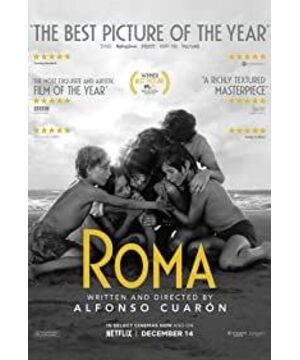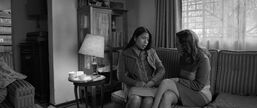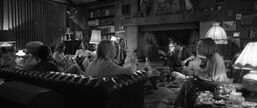Alfonso Cuaron's "Roma" officially opened in China last weekend.
Many people must have seen the resource like me, and I strongly recommend going to the theater to watch it again. When it comes to showing students a movie in class, I always ask if I have seen it. When I meet one or two people who raise their hands, I will definitely respond with a smile that is extremely sincere in my opinion, and a little weird in the eyes of the students - congratulations to them for having such good luck, and they can read it again.
On the one hand, it is to relieve the embarrassment and at the same time soothe their anxiety of "I want to watch it again", and on the other hand, they really feel that they are lucky. After all, you have to watch a good movie at least twice before you really see it. For the first time, most people are looking at the impression and lively. The second time, you can calm down and take a closer look at the doorway.
This is the meaning and charm of the second brush. Compared with the second brush, the "big screen second brush" is simply double luck. In the era of small screens and split screens, the effect of two swipes on the big screen is equivalent to watching a new movie. If you're watching Roma on your computer, let alone your phone. Trust me, you haven't seen "Roma".
Compared with painting's emphasis on "original work", film as art seems to be more inclined to copy. We call one copy after another a "copy". I believe that many people still remember the scene in "Paradise Cinema" where copies are being sent between different theaters. It seems that there is a reason for this, and film has become the most popular art in contemporary times. However, in the eyes of many fans, no matter how many copies are made, a movie is "the art of cinema" after all.
Ironically, "Roma" itself was once boycotted by the two major American theater chains because of the investment of the streaming giant Netflix. The film, which was first launched on Netflix, is now being re-emphasized on the big screen, suggesting that certain boundaries are being broken.
The artistic and technical standards of "Roma" are also crushing in big screen movies.
Director Cuaron spent a lot of money to create a restored Mexican community "Rome" in the 1970s, which is not the same species as the "big texture of the net" commonly seen in China. The cleaning powder that was repeatedly washed by water at the beginning of the movie made white foam on the black slate, and the sound of the monstrous waves at the end of the movie was amplified on the big screen together. It seems that in Pepe's (director Cuaron's childhood) feeling, the two-meter-high wave is fifteen meters high. The trickle of a family's life corresponds to the turmoil of society and times.
When the maid Cleo was just pregnant, she was abandoned by a man and walked out of the theater. The first time I watched it on the computer, I only noticed the high-speed back and forth of the ball in the hands of the dealer next to her, just like Cleo Zhang Huang's bewildered heart. When I watched it on the big screen for the second time, I found that the skeleton man manipulated by the magician in the foreground collapsed to the ground, pretending to be "dead", and full of despair.
When Cleo closed her eyes like Pepe and pretended to be dead, she felt fine. Much like the sleeping and dead toys scattered around Pepe's house. The rules of the children's game are "play dead and can't talk", and the same is true in the adult world. Cleo couldn't speak, but she could see, hear, and smell. The fire slowly rising in the forest, the bricks and gravel that fell from the baby box in the delivery room during the earthquake, the dust rolled up by the goats in the field, and of course, the huge waves she "fleeed" to save the child. All of this is projected and presented on the screen more realistically.
The big screen, to be precise, the big screen without grading and strict censorship, does not detract from the film. Most obviously, in the part of Cleo's man opening the room and throwing the stick, the man should be completely naked, which confirms that he claims that he has "nothing" in his family, except for the "stick" under his crotch and in his hand. The panorama on the screen was captured as a medium-close shot.
There is no Easter egg at the end of "Roma", if I insist, it is the Easter egg of the sound. When the picture froze to the sky, the sound continued, just as the family's life continued after the father moved away. Meanwhile, Cleo, who is speechless in severe pain, returns from the beach trip and appears to be able to speak. She told her co-workers that she had a lot to say to her.
The Chinese version of the film's poster specifically highlights the line "Women are always alone" in the film. Apparently for the occasional publicity for the upcoming Mother's Day. Neither the maid Cleo nor the hostess Sophia (Pepe's mother) were abandoned by their respective men at about the same time. But the difference in class is doomed to their difference.
The stalk of "female driver" makes this different presentation seem a bit humorous. The host Antonio always patiently practices his "precision reversing" every time he comes home. Under the loud engine sound, he declares his strength intentionally or unintentionally. This Sophie Adam's home can no longer accommodate him almost "erect". " is showing off.
After Antonio left home, Sophia was furious for a time, forcibly plugging and scratching the body. It seemed that she wanted to send Cleo for a pregnancy test, but she was in a hurry to ask her husband's whereabouts. This cathartic desire for destruction could not be concealed in the end, and ended in breaking the barriers of the family and changing to a smaller car.
A decisive response to men like this is impossible to imagine in Clio. She had no chance at all, and when Fleming, who had "nothing" and only "manly", yelled at her, calling her a "damn servant", she could only bear it. Suffering from being subjected to double male violence (Fleming entered her body and pointed a gun at her bulging belly from behind) gave birth to a stillborn baby. She didn't even have the right to cry out in pain. Compared with the pain of the little masters' sunburn and screaming, Cleo's pain fell into a huge silence, as if she was really dead.
This kind of injury is not comparable to the injury of Sophia being flirted by other opposite sex and insulting her. Although the latter injury does exist, and it also verifies the badness of men. However, Sophia can never truly understand Cleo's situation and pain. That's why Sophia's first thought when Cleo rescued the children from the beach and muttered to herself was to reassure Cleo that her children were all right.
As a film with a semi-autobiographical nature, Cuaron did not dive into his romantic and tender old dreams. He maintained a valuable self-examination of himself and his parents' class. As mentioned earlier, the main purpose of Sophia taking Clio to the hospital was to inquire about her husband's whereabouts. Clio's pregnancy test was actually incidental. Pepe's grandmother brought Cleo to the hospital with a broken amniotic fluid. When the information was registered, she didn't know anything about Cleo's middle name and birthday.
This does not necessarily show how hypocritical Sophia's mother and daughter are, but it just proves that the gap between classes is unbreakable. As a doctor, Antonio, the male host, was really hypocritical. He was slapped in the face on the spot under the banner that the attending doctor would not let him accompany him, and finally shied away because he had a patient. This funny form is very similar to Fleming, who learned that Cleo was pregnant at the theater and ran away quietly before the end of the movie.
These sporadic personal remarks above are only a very small part of "Roma" to be evaluated. It seems like the streetscape of the entire community in Rome, from the inside of the house. This re-enactment time and space constructed by director Cuaron has yet to be walked by more people. Every step is to enjoy, to enjoy the happiness of "big screen second brush".
View more about Roma reviews











